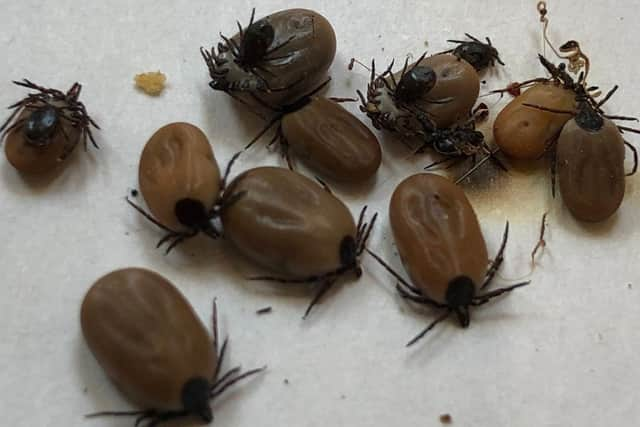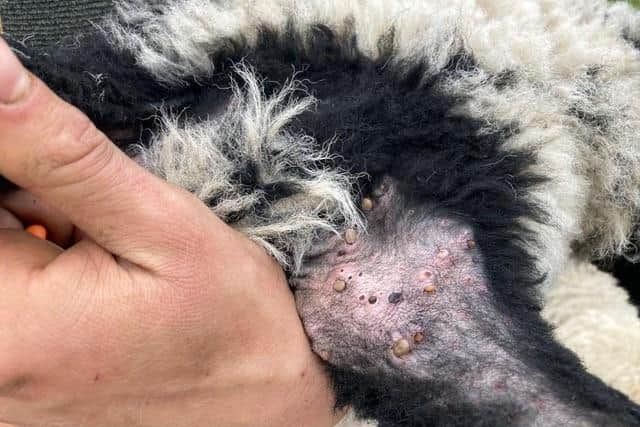Ticks on the rise in the Peak District as warnings made over Lyme Disease
Ticks are small blood-sucking arachnids which feed on livestock, deer, birds, mice, horses, pets and humans. The creatures carry a range of diseases, with Lyme disease by far the most common in humans. Moorland Association member Dan Richmond-Watson said: “We are seeing a stratospheric rise in tick numbers in the Peak District at the moment.
"There has been a perfect storm of contributing factors this year including a hot dry summer and a change in land management in the area – lack of conservation grazing, and limited vegetation burning and bracken spraying have all made matters far worse.”
Advertisement
Hide AdAdvertisement
Hide Ad3,000 cases of Lyme disease are diagnosed in the UK every year. However, due to symptom similarities with Covid-19, it is said the true number of infections could be much higher. Julia Knight of the charity Lyme Disease UK said: “Lyme disease is a serious bacterial infection and it is important that it is diagnosed and treated quickly and appropriately to prevent any long term symptoms occurring.


"Lyme disease is a preventable disease and awareness of it is key, not only amongst the general public but also frontline health professionals so it can be either prevented completely or recognised and treated quickly.”
Pets, including dogs, can also suffer following a tick bite. Our canine friends can show signs of fever and lethargy when bitten. Mr Richmond-Watson continued: “I would urge Natural England to reintroduce conservation grazing, removal of bracken and excess vegetation to help reduce the prevalence of tick and limit the spread of disease.”
What to look out for if you suspect a tick bite
The Moorland Association shared some tips for ensuring the safety of yourself and your family when you’ve been out in the Peaks.
Advertisement
Hide AdAdvertisement
Hide Ad

Brush off your clothes before entering your home to dislodge any ticks. Check your skin carefully, including children and pets. Ticks can be very small, so look thoroughly. If you find a tick, carefully remove it with a tick remover tool and wash the affected area. Prevention is the best stratedgy. It’s advised you where long tops and trousers, tucking them into your socks. If you feel unwell after a bite, speak to your GP.
